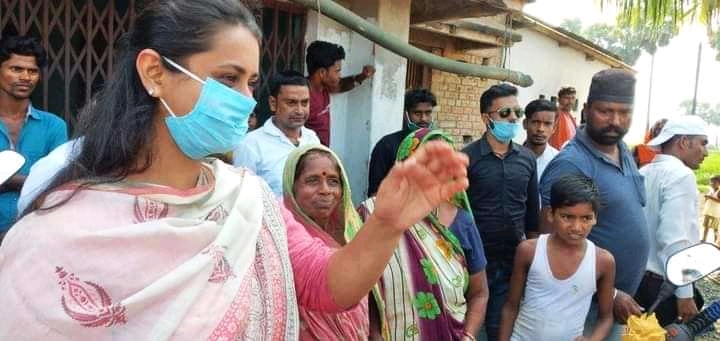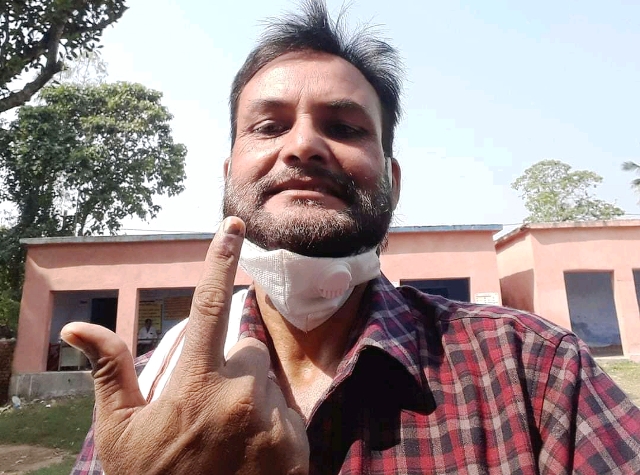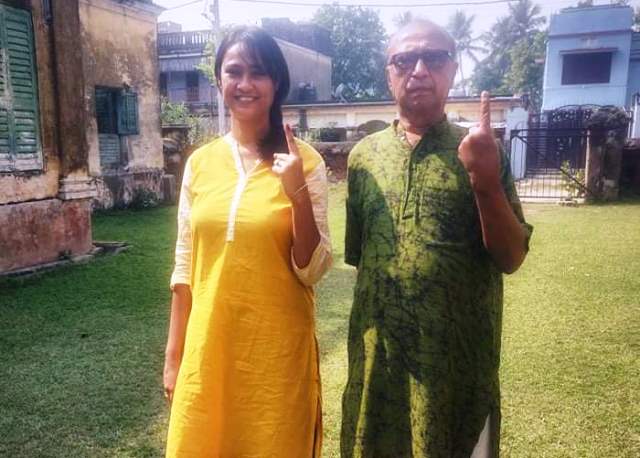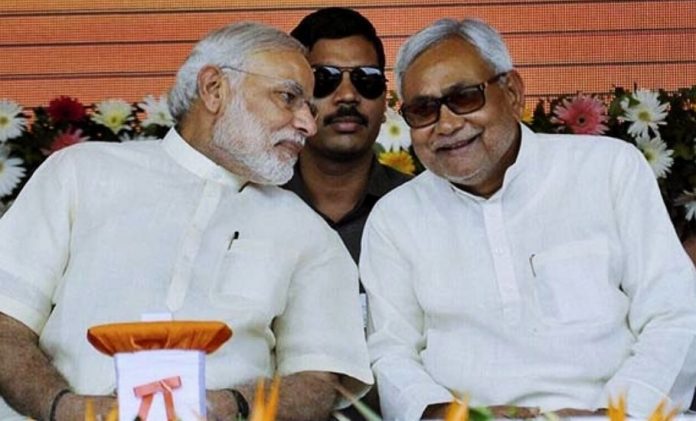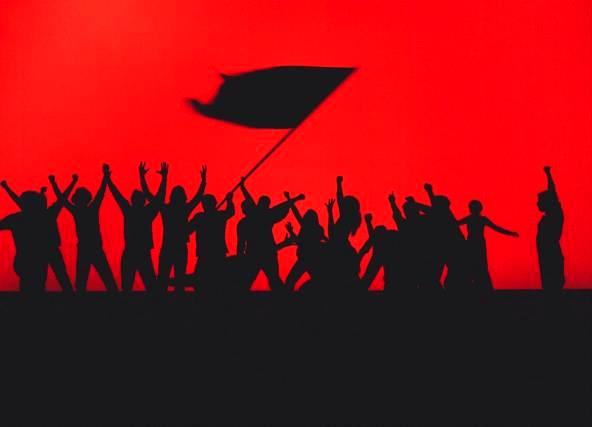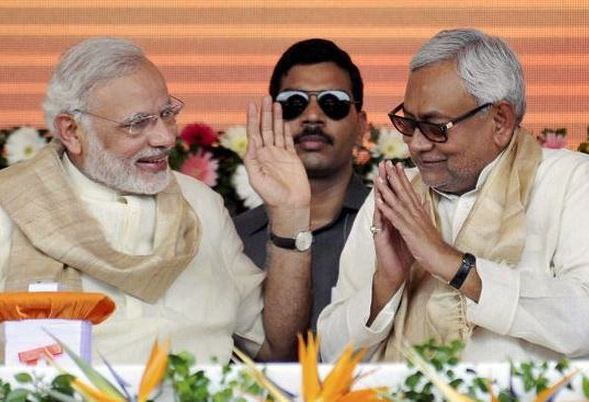After President Donald
Trump, Republican Party candidate for next month’s presidential election has used
the term ‘socialist’ to demonize his vice presidential adversary Kamala Harris,
it is time to ponder over what has become, and future role of the socialists,
and not just in the United States.
It is not that the
rival Democrats are pushing the world’s biggest capitalist powerhouse towards socialism.
Even Bernie Sanders was edged out of the race for fear of annoying among
others, the business and industry, the multinationals and the arms and energy
exporters.
Any debate on democratic
socialism or such other ideological issues has been overshadowed by a myriad day-to-day
issues about the American people and their place in the world affairs. We will
know which way they will vote next month, and hope Vox Populi prevails – peacefully
and smoothly.
While this is the
state of the world’s ‘greatest’ democracy, the ‘oldest’ set the trend earlier with
thrashing the Labour under Jeremy Corbyn received in the last British
elections. People rejected Corbyn’s democratic socialist platform.
The two powers have,
however, often combined forces to thwart the rise of any socialist leader or
party with centrist or left-of-centre leanings in the vast developing world. Many
nations remain under their thrall, gaining little, and some that they have
intervened in, directly or through proxies, are virtually ungoverned, or are
ungovernable. Western democratic yardsticks are applied to judge them. But a
demagogue/dictator is okay if he is pliable and buys arms and technology.
To my poser last
year about end
of the era of liberals, I add socialists, although it’s not that all
liberals are socialists and vice versa. And they have themselves to blame. But
consider socialist republics that have adopted the capitalist course for
economy while retaining political controls. Or, the growing number of
‘nationalist’ leaders who take the democratic course to win elections and then
trample upon political opponents, civil society and media. They justify their
actions, varyingly, in the name of “popular will,” ‘mandate’, “national
security” and call their critics ‘traitors’.
If the ‘greatest’
and the ‘oldest’ are working on their agendas, what about the ‘largest’? This,
again, is pertinent to ask. India has baffled the world with its long tradition
of socialists of various hues deeply embedded in its body politic. Even before the
socialists, the communists have also held sway for a century now, if the 1920 textile
mills’ strike is considered their beginning.
Both are on the
back-foot today even as a communist-led government runs Kerala state. The Left
Front ruled two other states, West Bengal and Tripura and had 60 in the Lok
Sabha alone till only a decade back. They are now reduced to three in the Lok
Sabha, five in the upper house and roughly a hundred state legislators.
As for socialists,
the only party flaunting the ‘Samajwadi’ label has five members in the Lok
Sabha and eight in the Rajya Sabha, but is out of power in Uttar Pradesh, its
only bastion, and its numbers will dwindle.
The rest, their
legislative strength ebbing or non-existent, have got themselves embroiled in
caste-driven politics. Whatever work on the ground, as with the communists, is being
done by dedicated individuals and bodies that are about the last hope for the
poor, but have no role and with their cadres fleeing, no say in the electoral game.
But then, India’s socialists
had been a spirited lot, displaying a bohemian streak, living austere lives, wearing
home-spun khadi without the laundry-washed starch unlike the Congressmen and interested
more in agitating than seeking power.
They had a bright
place under the political sun in the early years post-independence. The
‘progressives’ of both the communist and socialist variety held sway over the
cultural world, contributing some of the best literature in ink, on political
platforms and on celluloid. They influenced the minds of generations of people
across South Asia and wherever Hindi/Hindustani/Urdu was understood. They ignited minds, but as time passed, do not
win votes, if that is the yardstick of their success. They failed to offer electoral
options or political alternatives in policymaking.
As a political
force, the socialists have always been badly organised and remain divided,
often fighting each other. The political lore in the last century was that they
cannot stay united for more than two years — and cannot stay divided for over three.
They began as part
of the Congress during the freedom struggle against the British, but moved away
from it under Jayaprakash Narayan and Ram Manohar Lohia. They became disillusioned,
even angry, with Congress’ Prime Ministers Jawaharlal Nehru and later Indira
Gandhi. Visceral anti-Congressism became
the fulcrum on which much of the socialists’ politics evolved.
Yet, hundreds of them,
like George Fernandes, must be credited for fighting the Indira-imposed Emergency
(1975-77). Fernandes’ railway strike call shook India. Chandra Shekhar who
could have compromised with Indira, refused and went to jail with fellow-socialists
like Madhu Limaye and Madhu Dandavate. They are all gone, leaving behind lesser
leaders.
When the Janata
experiment failed, those of the right-wing orientation consolidated and are now
in power. But the socialists got embroiled, happily, in caste-driven politics. And
to survive, joined the Bharatiya Janata Party bandwagon – if only to spite the
Congress and bypass the communists.
Mulayam Singh
Yadav, ageing and ailing and side-lined by son Akhilesh, is one of the last of
this lot. Bihar’s long-time chief minister Lalu Prasad Yadav is imprisoned for
graft. His wife and squabbling sons are conducting the current election campaign
in Bihar.
Dalit leader Ram
Vilas Paswan routinely switched sides to survive and be a minister in most
governments in the last two decades. He died this month, leaving the Bihar
fight to son Chirag. The common ally-turned-adversary of them all, Nitish Kumar,
is fighting to retain his chief ministership of the state. There was nothing
socialist about his opposing Modi and then switching to his side.
Although with
socialist roots struck deep during the movement led by Japrakash Narayan (JP),
none of them is text-book socialist. They are all dynasts who have done well
for themselves. Hindi-speaking India remains poor, backward, and lawless – no
matter who rules.
Their gambit of
forging vote-winning caste-combinations failed in Uttar Pradesh and is now under
test in Bihar in the face of the BJP’s Hindutva onslaught. Their wooing other
backward castes (OBCs) has also been neutralised. Their Muslim support base
also stands impaired, despite vigilante-led violence and government apathy.
Sharad Yadav who
sought to strike a different course is ill. He had scored a shock Congress defeat
way back in 1974 and shot to national fame. Today, Subhasini, his daughter and
political heir, is contesting on the Congress nomination. The circle is
complete for at least this socialist.
Can a Biden-Harris
victory in the US or a Nitish/BJP defeat in Bihar bring the socialists back on
the track? Perish the thought.
The
writer can be reached at mahendraved07@gmail.com
